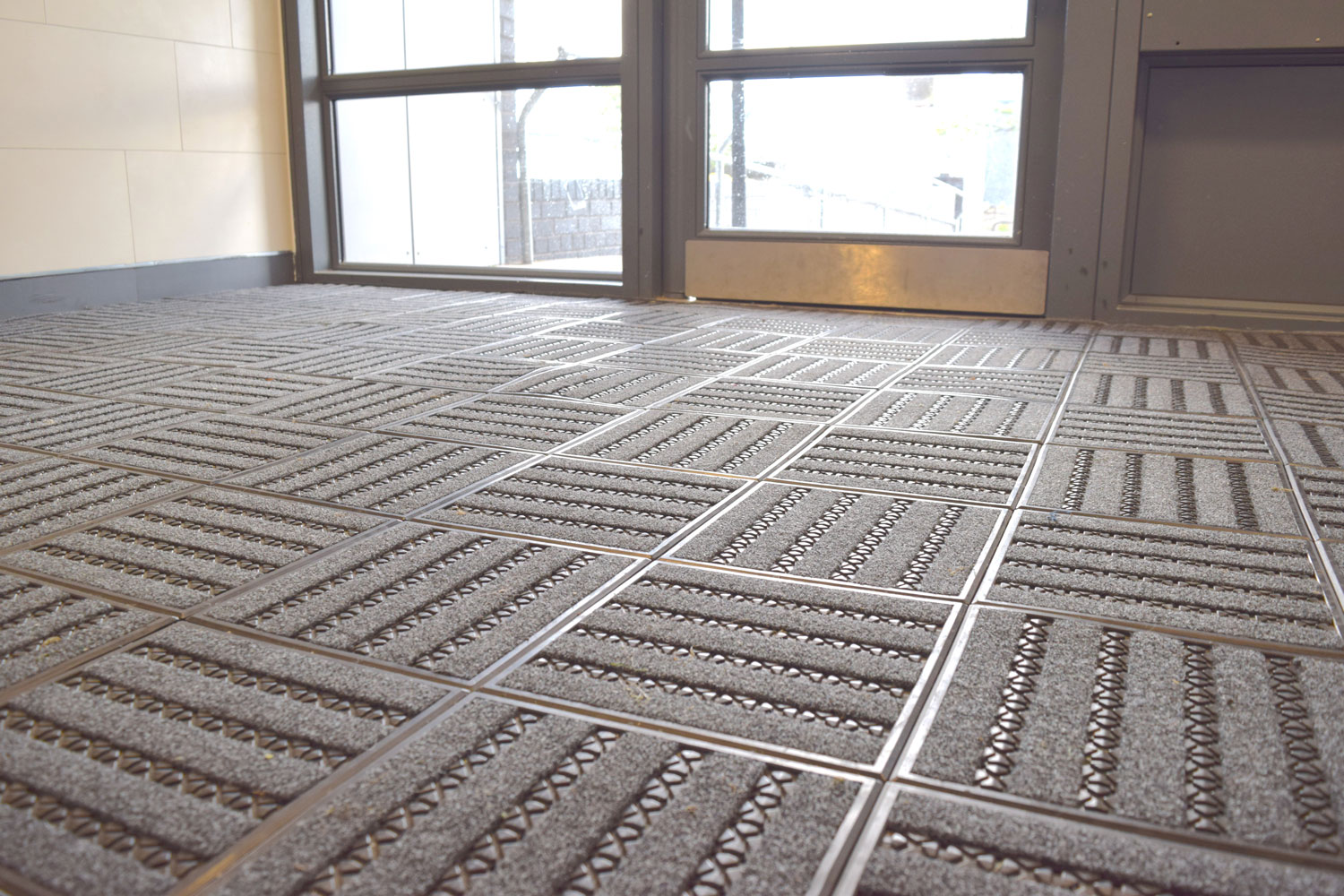
Entrance matting is the first and last thing people see when walking into a building, therefore it’s important to make a lasting impression.
Statistics show that up to 80% of the dirt in a building is brought in on the soles of people’s shoes. Installing a good entrance matting system can improve safety and stop dirt, debris and bacteria from being trailed in from outdoors. Not only this, but the right entrance mat can significantly reduce cleaning and maintenance costs too.
In this blog, Matthew Evans, Divisional Manager at Mat.Works shares his top tips on how to choose the right entrance matting for public and commercial environments.
Assess the entrance space
Fitting the wrong mat is an expensive mistake to make, therefore, it’s vital to assess the space. Everything from the size and shape of the space to the footfall must be taken into consideration and will impact what type of mat is needed.
How much footfall do you have? Some mats can undergo light foot traffic, but it takes a high-quality solution to withstand heavier loads of traffic. In certain sectors, such as retail, heavy wheeled traffic may need to enter spaces.
The latest innovations, like those in our Treadloc 25 range, have been designed to withstand heavy footfall and wheeled traffic. Our range will not expand, fade or buckle under pressure which makes it an ideal heavy contract solution.
Consider the length
Unlike domestic spaces, people don’t tend to wipe their feet before entering public and commercial spaces. Therefore, an entrance mat needs to be long enough to absorb moisture and remove dirt as people walk across it.
It’s predicted that it takes a minimum of six footsteps to trap and remove dirt, debris and moisture effectively. The six-step rule should be kept in mind when it comes to specifying entrance mats for both indoor and outdoor areas.
Use both external and internal mats
Ideally, external, primary and secondary matting should be used in a facility. By using three entrance mat solutions, instead of just one, it enables businesses to better protect their interior spaces as more dirt, debris and moisture will be removed when people enter the building.
If primary matting can’t be used, it is essential that the correct effective secondary is installed to ensure the space remains clean. For instance, tiles are ideal for secondary matting, as they can be moved around with ease.
For external areas, using specialist matting that scrapes off dirt and absorbs moisture is best practice. There are plenty of mats that can withstand harsh weather conditions but that doesn’t mean they are effective at trapping dirt.
Increase brand awareness with logo mats
Logo mats are one of the easiest ways to make a lasting impression on visitors while reducing dirt and moisture ingress. They can also help to promote businesses, by displaying company slogans, greetings and important messages.
The best logo mats are simple, yet effective and incorporate core corporate colour schemes. It is also important to invest in high-quality, durable solutions, as cheaper mats can fade, fray and rip and consequently, increase the risk of falls and trips.
Mat.Works Entrance Solutions are experts in providing primary and secondary matting solutions for heavy foot traffic areas. To learn more email [email protected] or call 01709 763 800.


